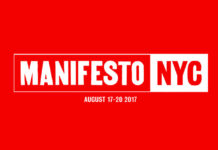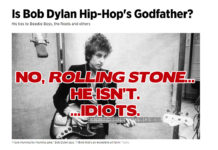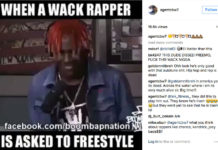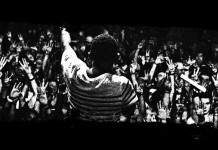In many ways, the internet has democratized both art making and art criticism. While this might have helped independent hip hop artists, it has also helped diminish the effectiveness of traditional music critique.
The internet has been great for independent hip hop artists. In a way, it’s almost like a return to the roots of hip-hop. Part of the beauty of the movement’s early days was that it gave marginalized communities a vehicle through which to express themselves. Many early rappers lacked any sort of formal training in the arts, and part of what hip hop did in the earliest stages was blur any sort of distinction between cultural consumption and cultural production by employing commercially mass-produced objects — records and turntables, etc. — in the way that musicians historically employed traditional instruments. All an aspiring hip hop artist needed were vocal chords, a nimble mind, and, ideally, two-turntables and a crossfader. It was about vehicles of self-expressionism as a source of empowerment and transcending the perceived limitations of what you were born into.
Digital technology has simplified everything even further, and beyond making production tools more accessible to artists, it has also helped create a situation where amateur critics and fans can openly share their ideas with one another and actively participate in the discussion. There is little question that the internet and digital media have made everything simpler for the musical artists themselves, but now the question is whether or not the field of music criticism, particularly criticism of hip hop music, will ever exist in the way it used to.
There are many things that are great about the internet leveling the music industry playing field. As details from Viral Heat illuminate, Twitter reflects a wider spectrum of voices than traditional mass media ever has:
My favorite hip hop album ever. Ridiculously great. RT @stereogum: .@MFDOOM and @Madlib‘s Madvillainy is 10 years old http://t.co/sQPAdmu6HC
— Tom Mantzouranis (@themantz) March 24, 2014
Celebrating the 10 yr anniversary of my favorite Hip Hop album. @madlib & @MFDOOM collab. http://t.co/SGZ1hGqXRB #hiphop @stonesthrow
— Rodney Ibarra (@Jexpo1976) March 25, 2014
Final phase of elimination game. Round 1. Vote out your least favorite Hip-Hop album. pic.twitter.com/JerYWWR5Kz
— RHHSR (@PWTR_Mark) March 22, 2014
@BigGhostLtd My favorite project of the year so far. The man made a damn good hip hop album. Great beats, lyrics, mic presence, whole pkg.
— Justin (@Gordon_Geico) March 21, 2014
But there does, however, arise some question about what the long term consequences of the internet will be, in terms of both hip hop production and hip hop criticism. Social media has, idealistically speaking at least, legitimized everyone’s voice. But more pragmatically, if not more cynically, the question becomes: Doesn’t social media also reflect, if not help to fuel, a society where everything moves at breakneck speed, and most of our sensory experiences and intellectual pursuits are consumed in bit-sized doses? Everything is ephemeral and flashy now. Can it ever allow for the same contemplative space as traditional print journalism, where writers didn’t quite have the constant rolling deadline that they do in the present age with things like Twitter?
Jay-Z doesn’t think so. After the release of his twelfth album, entitled Magna Carta: Holy Grail, rapper Jay-Z said that in the dawn of the internet age, professional critics are becoming less and less important. During an interview that the rapper gave with Power 105.1’s The Breakfast Club that it used to be that journalists would receive copies of albums months before the music would be made available to the general public.
“I think reviews have lost a lot of importance now because of the internet,” Jay-Z said. He went on to speak about how it used to be that the reviewers would write their review, and the consumer would have nothing to go by but the review for maybe a month prior to even being able to hear the music themselves. “Right now,” Jay-Z said, “People are writing a review in a day. First of all, you can’t listen to an album and rate it in a day. It’s just impossible.”
The internet has made everything more accessible and more instantaneous — But does that have to come at the expense of aesthetic sophistication in the arts, or informed critical discourse? Hip hop did empower marginalized communities, but that’s not tantamount to saying that everyone who ever picked up a mic could stun with their ability. Similarly, a natural by-product of everyone getting to speak their piece on the internet is that some people are going to use that ability in a way that doesn’t serve as a tool for enriching discussion. In other words, with social media, we’ve got a powerful tool. The trick is figuring out how to best use it.
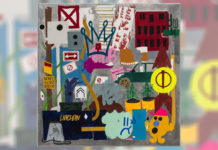

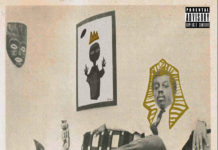
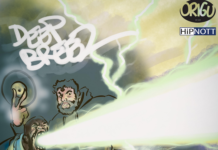

![The Underachievers – Crescendo [VIDEO]](https://www.birthplacemag.com/wp-content/uploads/2017/08/hqdefault-2-218x150.jpg)


![Fat Joe & Remy Ma ft. The-Dream – Heartbreak [VIDEO] Fat Joe Remy Ma The Dream - Heartbreak Video](https://www.birthplacemag.com/wp-content/uploads/2017/05/fat-joe-remy-ma-218x150.jpg)
![JSWISS featuring Chandanie – LML [VIDEO] JSWISS featuring Chandanie - LML [VIDEO]](https://www.birthplacemag.com/wp-content/uploads/2017/05/JSWISS-218x150.jpg)

![Akinyemi Ends Summer With “Summers” EP Release Show [9-17-17] Akinyemi 'Summers' EP release show at Brooklyn Bazaar](https://www.birthplacemag.com/wp-content/uploads/2017/09/summers-featured-218x150.jpg)
![4th Annual NYC VS EVERYBODY Yacht Party [9/16/17] #VSYacht 4th annual NYC VS Everybody Yacht Party#VSYacht](https://www.birthplacemag.com/wp-content/uploads/2017/09/vsyacht-218x150.jpg)
